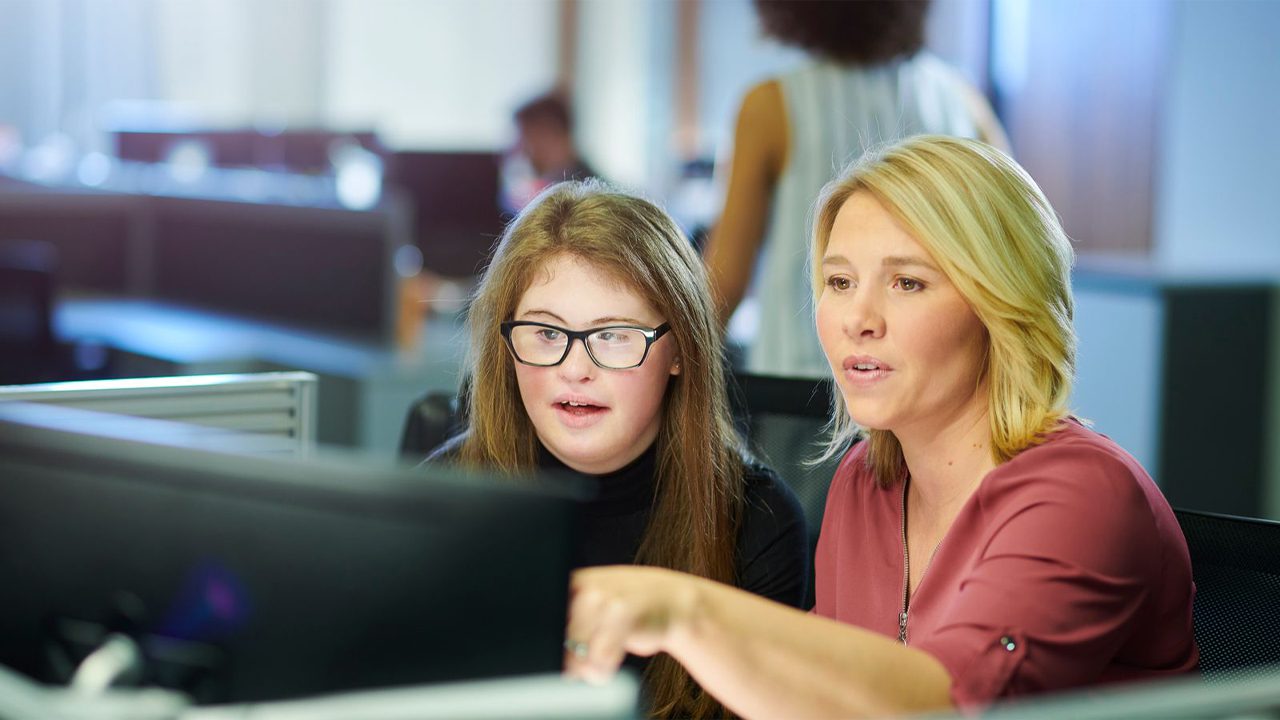
$224M OSERS grant program aims to improve transition services for students with disabilities
K-12 DIVE | By Kara Arundel | April 10, 2023
Dive Brief:
- The U.S. Department of Education has opened applications for a $224 million grant program aimed at improving postsecondary readiness for students with disabilities.
- The Pathways to Partnerships Innovative Model Demonstration Project will provide between 22 and 32 awards worth an average of $7 million each in upfront funding to state education and vocational rehabilitation agencies. The specific goal of the grant program is to strengthen collaboration between the state agencies, local school districts, federally-funded Centers for Independent Living and other partners to improve students’ access to college, workforce and independent living opportunities.
- Schools and vocational programs are required to provide transition services to students with disabilities to help them prepare for life after high school graduation. The grant funding could help agencies strengthen supports and even create college and career awareness programs for younger students, said Katherine “Katy” Neas, deputy assistant secretary of the Education Department’s Office of Special Education and Rehabilitative Services.
Dive Insight:
Although local, state and federal programs have worked to improve transition planning for students with disabilities over the past few decades, data from the Education Department’s Rehabilitation Services Administration shows that in program year 2021, only 38% of students with disabilities received pre-employment transition services.
Special education transition services — typically provided when students are in high school — provide job awareness and experience, college planning and instruction for independent living skills. Vocational rehabilitation agencies also provide pre-employement services.
Since special education services under the Individuals with Disabilities Education Act end when a student graduates or when the student turns 22 years old, according to federal law, transition services can help bridge their K-12 experiences with post-school activities.
“What we’ve experienced … is that not all kids who are eligible for these transition services are actually receiving them,” Neas said. She added that COVID-19 contributed, in part, to this gap.
It’s not fully understood what the barriers have been for providing these services but families have told Education Department officials that this should be an area of focus, Neas said.
“For transition services, we think, to be truly successful for students, it requires the education agencies, the VR agencies to be working with youth and their families,” Neas said. “I think part of the hope that we have with this opportunity is states will come up with different strategies on how to improve the quality and the availability of transition services.”
The five-year grants will give states the opportunity to develop sustainable, high-quality and innovative programs that could hopefully serve as models for best practices, Neas said.
“As states continue to improve and refine, we’ll be able to learn from the actions that they’ve taken and the things that they’ve explored,” Neas said.
The grant application encourages states to develop their own innovative practices. One potential avenue systems could explore is encouraging younger students with disabilities — even those in elementary school — to think about what they’d like to do in the future, what skills or activities they enjoy doing, and how those could lead to a potential job.
“We want kids and youth to start thinking about [that] sooner rather than later, and we hope that that will be something that will empower youth when they’re in high school, to really forge a path to whatever it is that they want to do when they become an adult,” Neas said.
Efforts have been made in recent years to expand postsecondary and workforce options for young adults with disabilities, including those with intellectual disabilities.
For example, Think College National Coordinating Center, a center within the Institute for Community Inclusion at the University of Massachusetts Boston, announced last week it was launching the Inclusive Higher Education Accreditation Council, a new accrediting agency for inclusive postsecondary programs for students with intellectual disability.
Think College provides resources, technical assistance and training related to college options for students with intellectual disability. It also manages the only national listing of college programs for students with intellectual disabilities in the United States, according to the organization’s website.
The Inclusive Higher Education Accreditation Council plans to petition the Education Department and the National Advisory Committee on Institutional Quality and Integrity to become a nationally recognized program accreditor.





